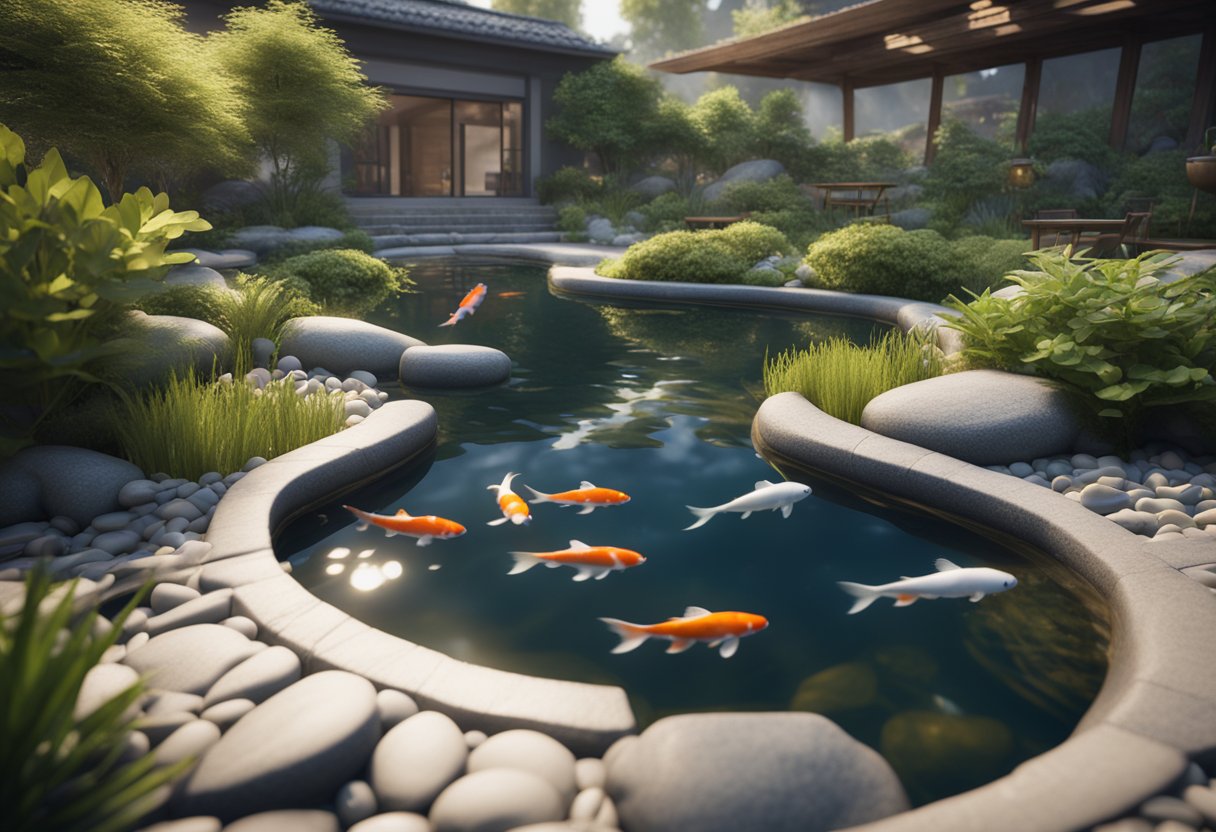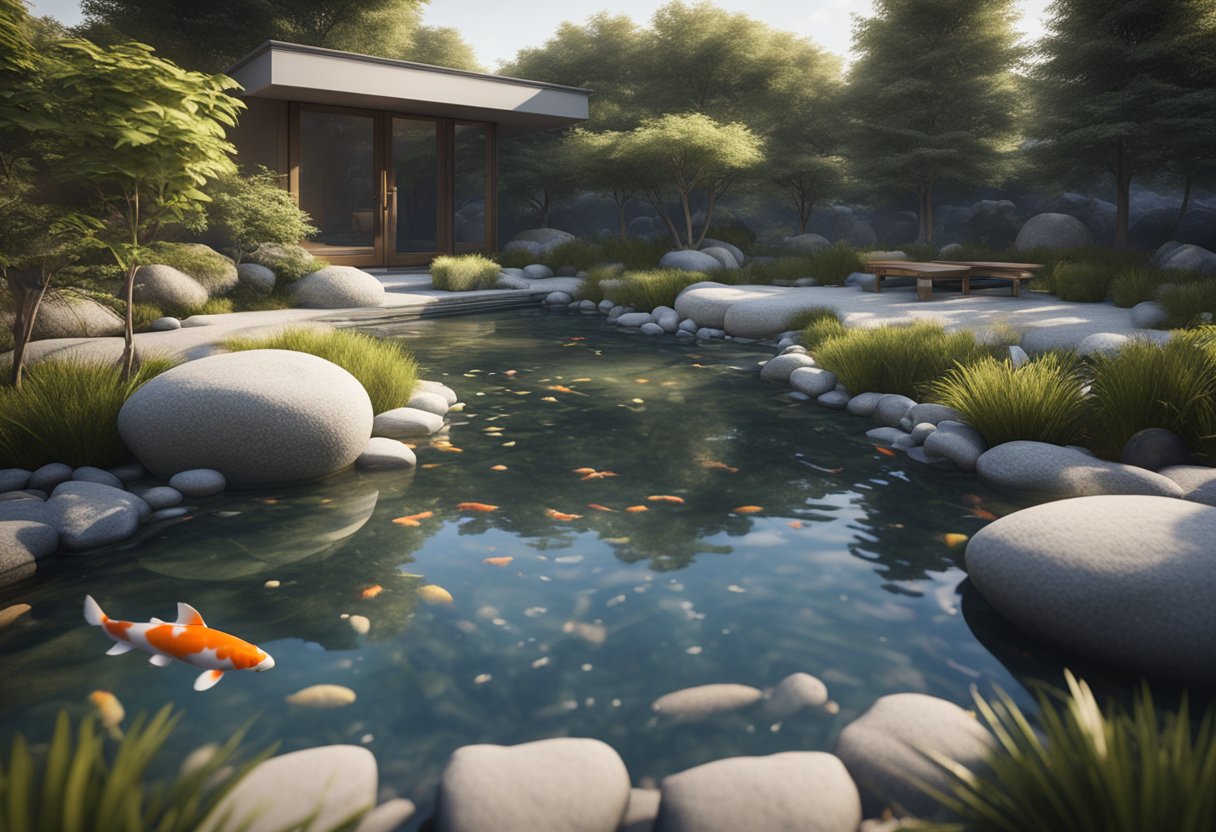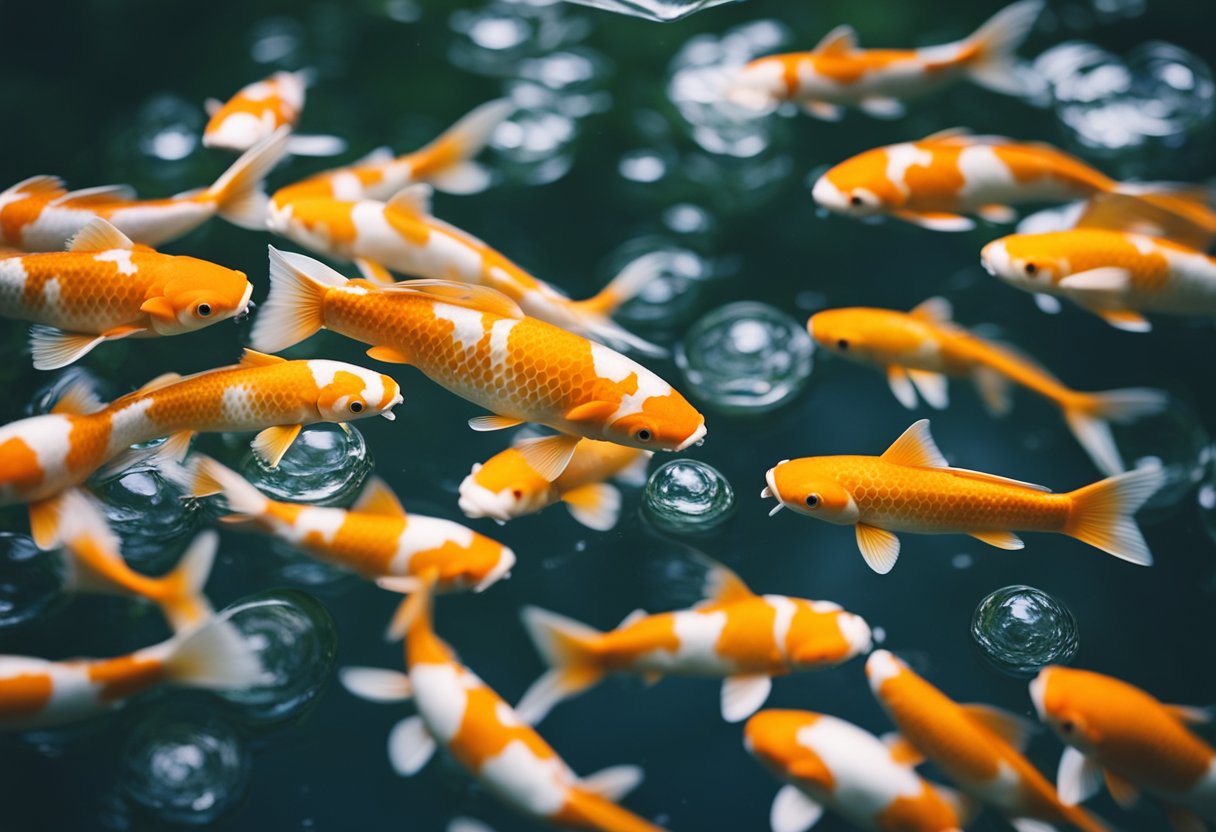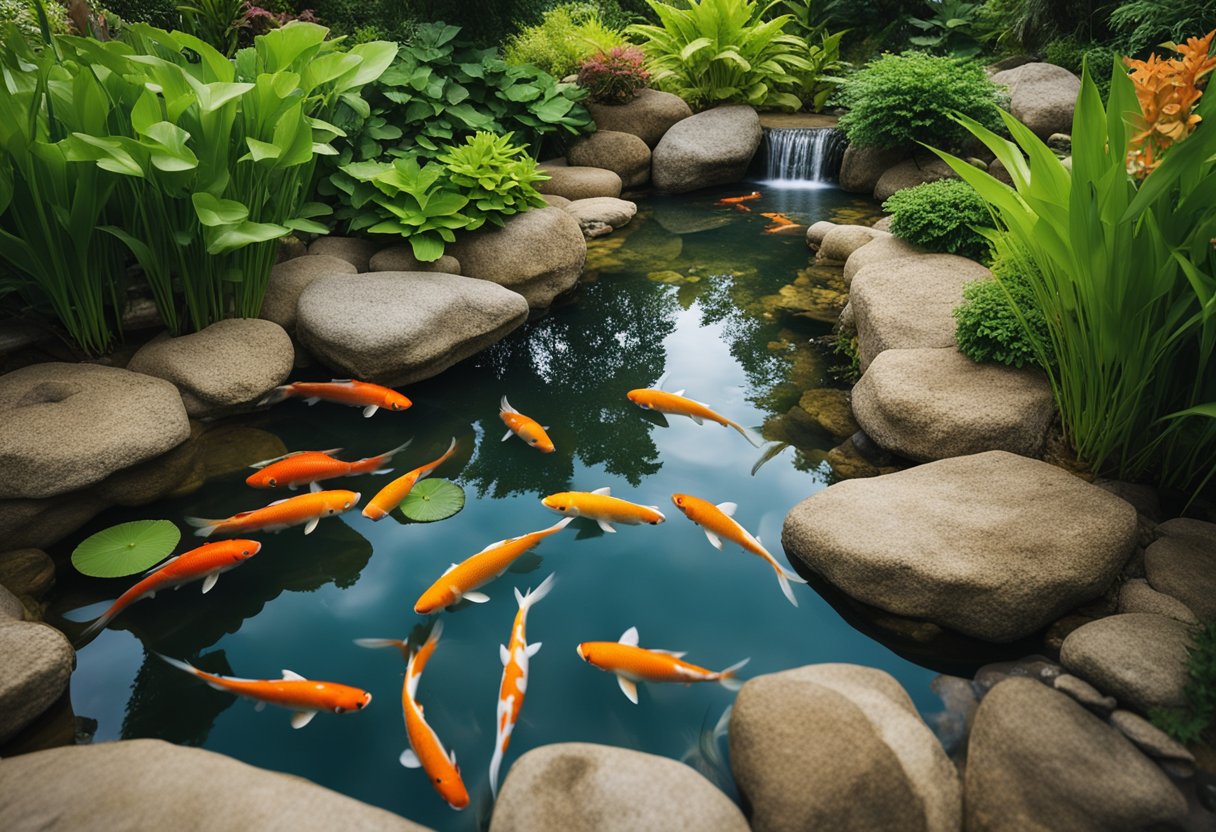Koi Pond Size Considerations for Ideal Setup
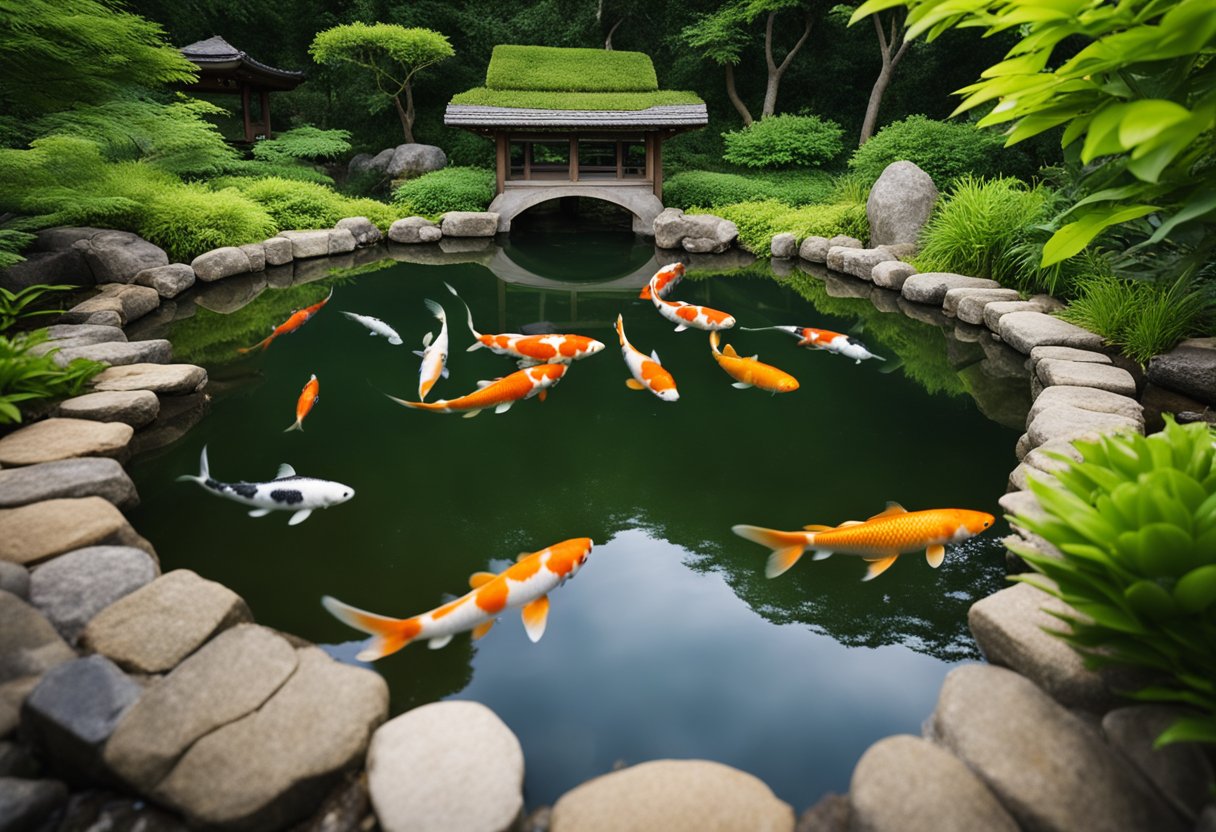
When it comes to creating a successful koi pond, one of the most important considerations is determining the ideal size. The dimensions of a koi pond play a crucial role in providing the right environment for these magnificent fish to thrive and grow. But what factors should be taken into account when deciding on the size of a koi pond?
In this article, we will explore the various koi pond size considerations and provide practical guidance on calculating the appropriate dimensions. We will also discuss the factors that influence the choice of pond size and offer insights into the advantages of proper pond filtration. Whether you are planning to build a small backyard pond or a larger scale koi garden, understanding the importance of pond size is essential to create a harmonious aquatic habitat for these beautiful fish.
So, let’s dive into the world of koi pond size considerations and discover the ideal dimensions for a thriving koi pond setup.
Why Pond Size Matters for Koi Fish
The size of a koi pond plays a significant role in the well-being and overall health of koi fish. The appropriate pond size depends on several factors that influence the living conditions and growth potential of these magnificent creatures. By understanding these factors, koi enthusiasts can ensure that their fish have the space they need to thrive and prosper.
Factors Influencing Koi Pond Size
Several key factors influence the size of a koi pond. These include:
- The Number of Fish: The more koi fish you have, the larger the pond needs to be. Koi are social creatures and require ample swimming space to avoid overcrowding and territorial disputes.
- Growth Potential: Koi have the potential to grow quite large, so it is essential to account for their growth when determining pond size. Providing enough space will allow the fish to reach their full size without constraints.
- Water Quality Requirements: Koi thrive in clean and well-aerated water. A larger pond allows for better water circulation and filtration, supporting their health and minimizing the risk of water quality issues.
By considering these factors, koi enthusiasts can create an environment that promotes optimal growth, health, and longevity for their beloved fish.
“Providing enough space for koi fish is crucial for their physical and psychological well-being. A well-sized pond allows them to exhibit their natural behaviors and swim freely, resulting in healthier and happier fish.” – Koi Pond Expert
Recommended Pond Size for Koi Fish
While the exact pond size may vary based on individual circumstances, there are general recommendations to consider. As a rule of thumb, experts suggest a minimum of 250 gallons per adult koi fish.
| Koi Fish Quantity | Recommended Pond Size |
|---|---|
| 1-3 | 750-1000 gallons |
| 4-6 | 1500-2000 gallons |
| 7-10 | 2500-3000 gallons |
These recommendations provide the necessary space for koi fish to swim, grow, and engage in their natural behaviors. It is important to remember that larger ponds offer more stability and are generally easier to maintain than smaller ones.
By understanding the factors influencing koi pond size and following recommended guidelines, koi enthusiasts can create a harmonious and thriving environment for their fish.
Calculating the Ideal Koi Pond Size
When it comes to creating a koi pond, determining the appropriate size is crucial for the health and well-being of your fish. By calculating the ideal dimensions, you can ensure that your koi have enough space to thrive and grow. Here’s a step-by-step approach to help you determine the suitable size for your koi pond:
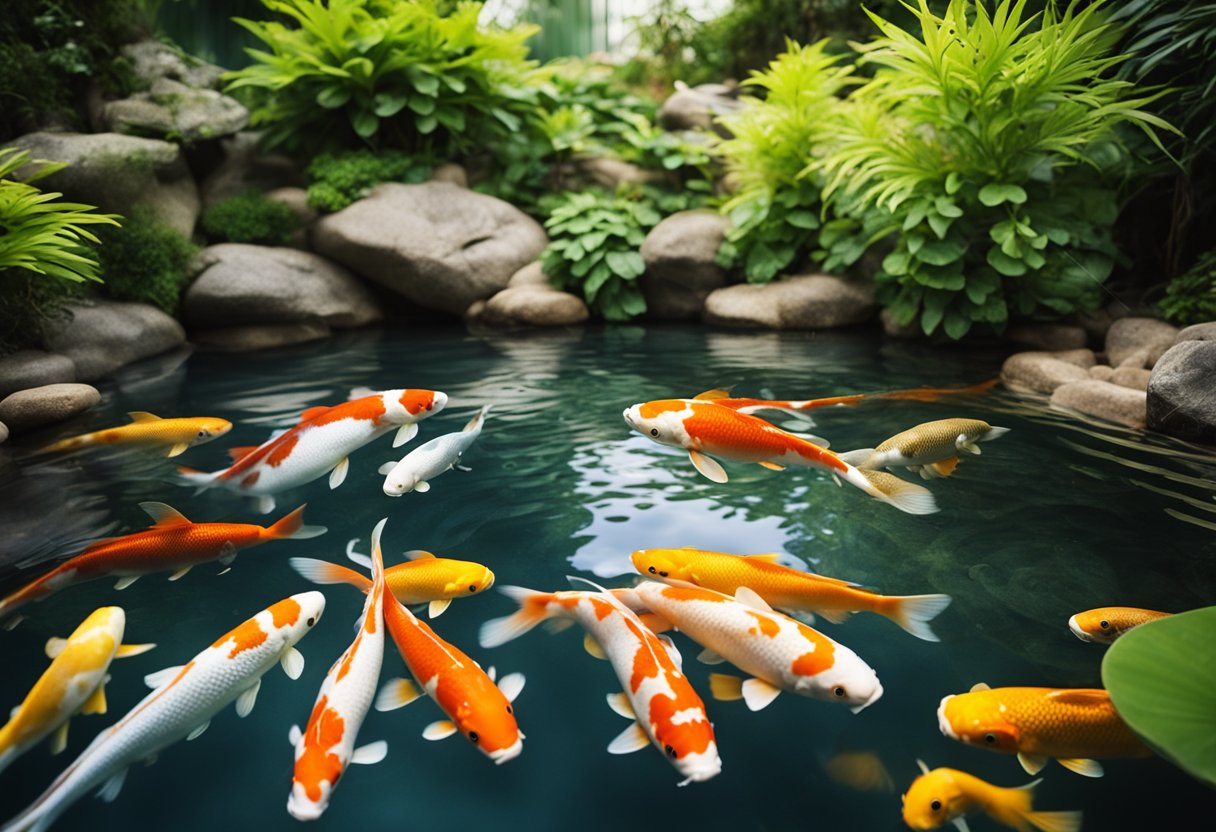
1. Assess the Number and Size of Koi
Start by considering the number of koi fish you plan to keep in your pond. Each koi requires a certain amount of swimming space to prevent overcrowding and stress. As a general guideline, allow for at least 250 gallons of water per adult fish to ensure optimal conditions.
Additionally, take into account the size potential of your koi. Larger koi will naturally require more space, so consider their growth potential when calculating the dimensions of your pond.
2. Calculate Water Volume Requirements
The water volume of your pond is another crucial factor in determining its size. Koi produce waste, which can affect water quality if not properly diluted and filtered. Aim for a pond volume that allows for efficient filtration and dilution of waste for a healthy aquatic environment.
A good rule of thumb is to have a filtration system that can process the entire pond volume at least once every two hours. This will ensure that the water remains clean and free from harmful substances.

